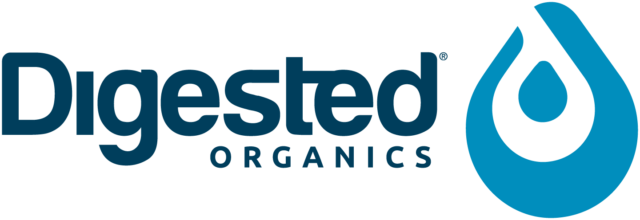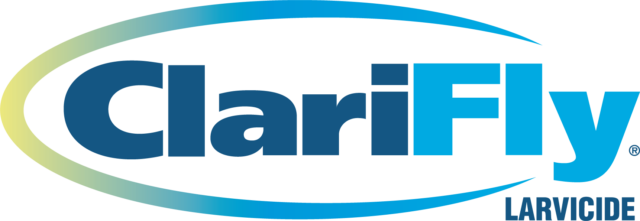I remember long, sleepy nights traveling while my daddy sang songs of the Old West and recited poems that took my imagination back to the cowboy who built the American West.
Songs and poetry were so much a part of our lives back then.
We’d sit around the campfire and sing. We’d sing hymns with fervor in church, and in school we’d learn the patriotic songs that filled our hearts with pride in this great land.
We memorized full-length ballads like “The Highwayman”, “Casey at the Bat” and “The Cremation of Sam McGee.” Poetry was so important.
We even memorized the “Gettysburg Address” and recited it in front of our peers. We didn’t worry about our self-esteem or our inferiority complexes. We simply realized that if we were afraid, it was all part of the growing process.
Get over it. Push through it. Conquer your fear. My, how things have changed!
With all of our worry about self-esteem and self-consciousness fetishes, I wonder if we are becoming a nation who has forgotten how to live. We get everything through the filter of the media. I wonder if we have forgotten how to sing and appreciate poetry.
Today we turn on the stereo, crank up the radio or stick an iPod in our ears to listen to music. We look to the new American Idol or the new pop star to fill our senses with ever- changing, popular sounds. Few look back to our heritage.
I want to share some of the poetry and lyrics I grew up with.
Zebra Dunn
We were camped on the plains at the head of the Cimarron
When along came a stranger and stopped to argue some.
He looked so very very foolish that we began to look around,
We thought he was a greenhorn that had just ‘scaped from town.
We asked him if he had been to breakfast; he hadn’t had a smear;
So we opened up the chuck-box and bade him have his share.
He took a cup of coffee and some biscuits and some beans,
And then began to talk and tell about foreign kings and queens,
About the Spanish War and fighting on the seas
With guns as big as steers and ramrods big as trees,--
And about old Paul Jones, a mean-fighting son of a gun,
Who was the grittiest cuss that ever pulled a gun.
Such an educated feller, his thoughts just came in herds,
He astonished all them cowboys with them jaw-breaking words.
He just kept on talking till he made the boys all sick
And they began to look around just how to play a trick.
He said he had lost his job upon the Santa Fe
And was going across the plains to strike the 7-D.
He didn’t say how come it, some trouble with the boss,
But said he’d like to borrow a nice, fat saddle horse.
This tickled all the boys to death; they laughed ‘way down in their sleeves--
“We will lend you a horse just as fresh and fat as you please.”
Shorty grabbed a lariat and roped the Zebra Dun
And turned him over to the stranger and waited for the fun.
Old Dun was a rocky outlaw that had grown so awful wild
That he could paw the ivory out of the moon for a quarter of a mile.
Old Dun stood right still--as if he didn’t know--
Until he was saddled and ready for to go.
When the stranger hit the saddle, old Dun he quit the earth,
And traveled right straight up for all that he was worth.
A-pitching and a-squealing, a-having wall-eyed fits,
His hind feet perpendicular, his front ones in the bits.
We could see the tops of mountains under Dun every jump,
But the stranger he was growed there just like the camel’s hump;
The stranger sat upon him and curled his black moustache,
Just like a summer boarder waiting for his hash.
He thumped him in the shoulders and spurred him when he whirled,
To show them flunky punchers that he was the wolf of the world.
When the stranger had dismounted once more upon the ground,
We knew he was a thoroughbred and not a gent from town;
The boss, who was standing round watching of the show,
Walked right up to the stranger and told him he need to go--
“If you can use a lasso like you rode old Zebra Dun,
You are the man I’ve been looking for ever since the year one.”
Yes I can twirl the lasso and at her I’m not slow.
I can catch nine times out of ten for any kind of dough,
And when the herd stampeded he was Johnny on the spot.
He could mill a million longhorns like the boiling of a pot.
Now there is one thing sure I’ve learned sense I been born,
Not every educated fella is a plumb greenhorn.
Songs of the Cowboys, 1921
I’ve busted broncos off and on
Since I first struck their trail,
and you bet I savvy broncos
from nostrils down to tail,
But I struck one on Powder River
and say hands, he was the first
and only living bronco that your servant couldn’t burst.
He was a no-account buckskin
with a strip down his backbone
and wooly like a sheep.
And every time he went aloft
he tried to leave me there.
Once when we went up
the lights across Jordan shone
Right there we parted company
and he came down alone.
And I hit old Tara firm
and he brought a bunch of stars
along to dance in front of me.
Now I ain’t a ridin’ air ships or electric flying beasts
and I ain’t got rich relations waitin’ me back East.
So I’ve sold my chaps and I sold my saddle
and my spurs can lay and rust.
For now and then there’s a bronco
that a buster cannot bust.
Little Joe, the Wrangler
Little Joe, the wrangler, will never wrangle more;
His days with the “remuda” -- they are done.
‘Twas a year ago last April he joined the outfit here,
A little “Texas stray” and all alone.
‘Twas long late in the evening he rode up to the herd
On a little old brown pony he called Chow;
With his brogan shoes and overalls a harder-looking kid
You never in your life had seen before.
His saddle ‘twas a southern kack built many years ago,
An O.K. spur on one foot idly hung,
While his “hot roll” in a cotton sack was loosely tied behind
And a canteen from the saddle horn he’d slung.
He said he’d had to leave his home, his daddy’d married twice
And his new ma beat him every day or two;
So he saddled up old Chow one night and “lit a shuck” this way --
Thought he’d try and paddle now his own canoe.
Said he’d try and do the best he could if we’d only give him work,
Though he didn’t know “straight” up about a cow;
So the boss he cut him out a mount and kinder put him on,
For he sorter liked the little stray somehow.
Taught him how to herd the horses and to learn to know them all
To round ‘em up by daylight; if he could
To follow the chuck-wagon and to always hitch the team
And help the “cosinero” rustle wood.
We’d driven to Red River and the weather had been fine;
We were camped down on the south side in a bend,
When a norther commenced to blowing and we doubled up our guards,
For it took all hands to hold the cattle then.
Little Joe, the wrangler, was called out with the rest,
And scarcely had the kid got to the herd,
When the cattle they stampeded; like a hailstorm, long they flew,
And all of us were riding for the lead.
“Tween the streaks of lightning we could see a horse far out ahead --
‘T was little Joe, the wrangler, in the lead;
He was riding “Old Blue Rocket” with his slicker ‘bove his head,
Trying to check the leaders in their speed.
At last we got them milling and kinder quieted down,
And the extra guard back to the camp did go;
But one of them was missin’ and we all knew at a glance
‘Twas our little Texas stray -- poor Wrangler Joe.
Next morning just at sunup we found where Rocket fell,
Down in a washout twenty feet below
Beneath his horse, mashed to a pulp, his spurs had rung the knell
For our little Texas stray -- poor Wrangler Joe.
By N. Howard “Jack” Thorp from Songs of the Cowboys, 1921 PD




